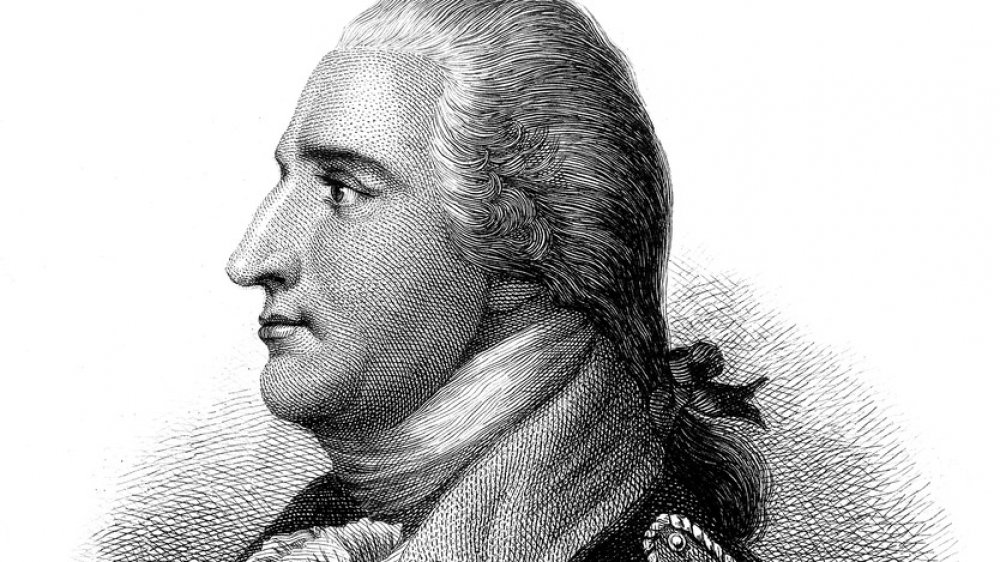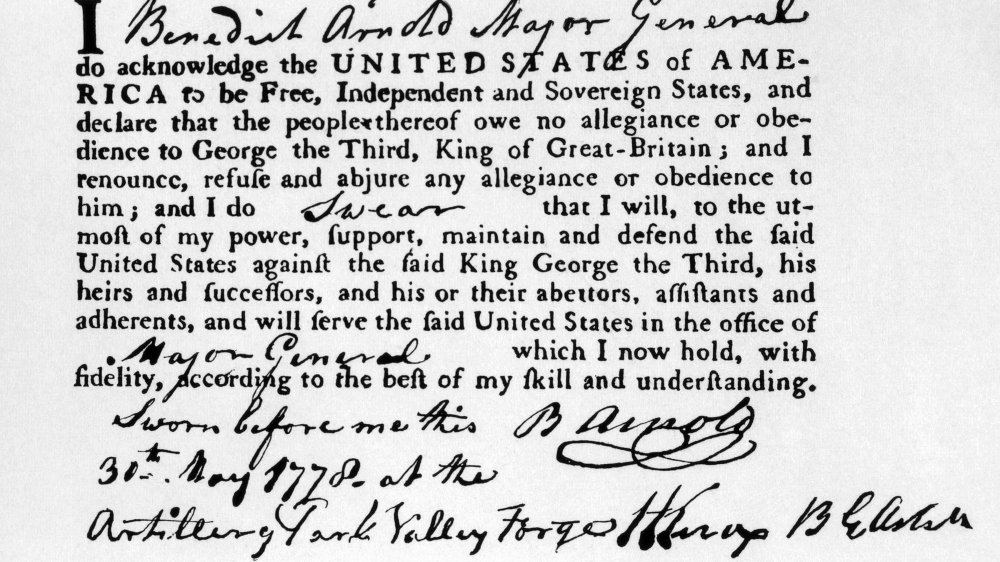The Truth Of Benedict Arnold's Death
It's not everybody who gets an entire classification of something named after them. Everybody calls a facial tissue a Kleenex, sure, but for people? Yet so it is with Benedict Arnold, an otherwise hit-or-miss military commander during the American Revolution who is now well and truly and forever associated with traitors. Biography tells us Arnold started out in business, specifically pharmaceuticals, eventually supporting his father, a very depressive alcoholic. He joined the militia in 1757 at the ripe old age of 16, fighting the French on behalf of England. He prospered somewhat as a businessman afterward, but wasn't a big fan of English taxation rates on colonial businesses.
He joined the Sons of Liberty, a group specifically anti-Stamp Tax — "no taxation without representation" being one of their catchphrases — and began the American Revolution as a captain in the militia. He successfully captured Fort Ticonderoga from the British, but was passed over for command of an invasion of Canada. He convinced George Washington, commander of the colonial forces, to let him organize a second invasion of Canada, but the operation was a failure and Arnold was badly wounded in the leg. Nevertheless, with his other military successes he felt he deserved greater responsibility and rank and was being ignored. Washington gave Arnold command of Philadelphia, where he met and married Peggy Shippen — his first wife had died while he was assaulting Ticonderoga — and this is where it gets more interesting.
Maybe he had his fingers crossed when he signed his Oath of Allegiance
Historians are split as to whether Arnold or Shippen drove the treachery train; there's nothing to suggest Arnold was acting on whatever traitorous inclinations he might have until he met Shippen, who was a friend of John Andre, the British spy who was caught and hanged for Arnold's plot to hand the fort at West Point over to the British. Arnold had been feeding Andre troop information for some time. Once Arnold was assigned command of the fort, he began deliberately weakening its defenses — delaying repairs, exhausting troops with pointless assignments. Once discovered, Andre was hanged and Mr. and Mrs. Arnold joined the British forces, which still held New York. He was well paid by the Brits, but — this bit is shocking — they never really trusted him, either. He and his wife eventually fled to England.
He tried to attain positions of authority in the British military, or in the East India Company (which was sort of an empire all by itself), but there was always that trust thing. Or lack of it, actually. Arnold didn't die a heroic death, or even a cowardly death. His health simply declined, partly as a result of his war wounds, partly as a result of what used to be called dropsy — edema, the dramatic retention of fluid in limbs. He died, age 60, and was buried in London. Peggy, his wife, 20 years younger than he, followed about three years later, of cancer.

